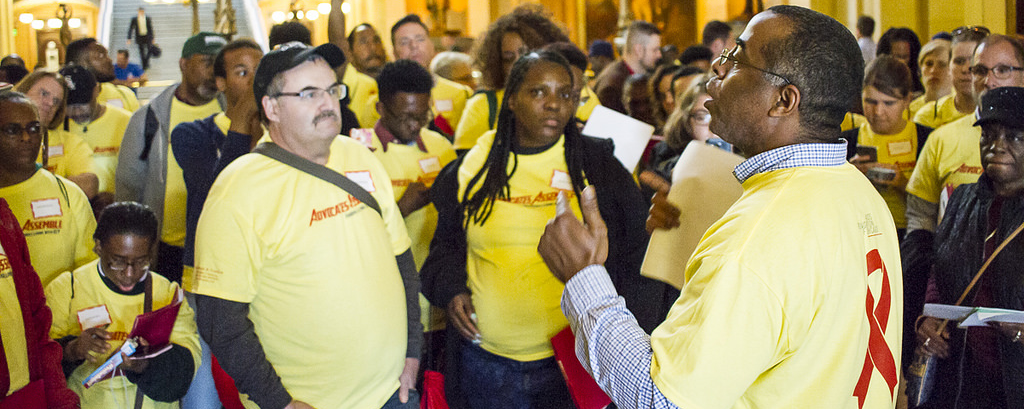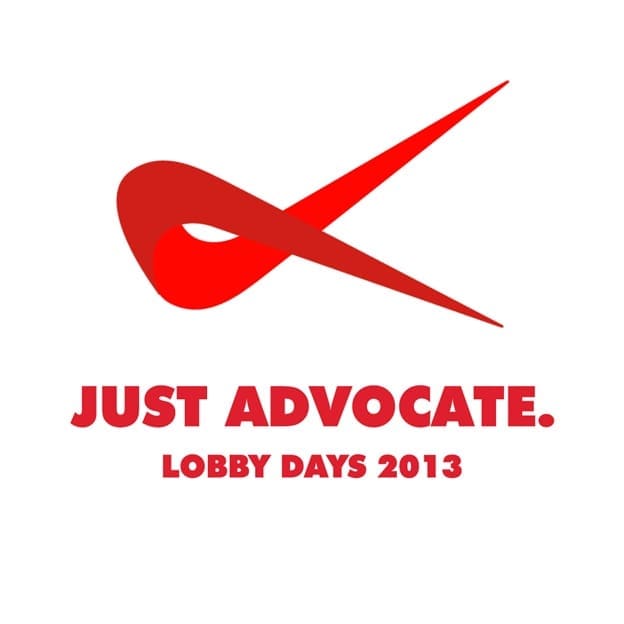
On May 31, the Illinois General Assembly adjourned its regular session without passing a state budget. Today marks 11 months without a budget, further threatening HIV testing and prevention services, care for people with HIV, supportive housing for formerly homeless people and other vital services. The AIDS Foundation of Chicago (AFC) is dismayed that in those 11 months, the legislature and Governor Bruce Rauner have failed to enact a budget for the current fiscal year or the next fiscal year, which starts July 1.
For 11 months, the human service and public health sectors have struggled without state funding to provide life-saving services to the neediest of Illinoisans. In January 2015, a temporary income tax increase expired. As a result, about $5 billion in revenue disappeared overnight from the state budget. HIV testing and prevention, supportive housing and mental health treatment are just a few of the many programs that have been held hostage while Springfield has failed to act. Although Rauner proposed an FY 17 budget, it contains a devastating $8 million cut to the HIV funding line, representing a 28% cut from the FY 15 budget and a reduction in funding for the African-American HIV/AIDS Response Act by 66% in FY 15 to $500,000.
“The General Assembly and governor have failed at their most basic responsibility,” said John Peller, president/CEO of AFC. “What business could operate for a nearly year without a budget in place? It’s time for the legislature and governor to pass a responsible spending plan that chooses revenue over cuts. We urge the state to enact a tax increase and other sustainable revenue as part of a comprehensive budget solution.”
This historic budget impasse has forced AFC to pursue litigation against the state. AFC and 81 other organizations joined the Pay Now Illinois coalition of human and social service organizations in a lawsuit against the governor and directors of various state agencies. AFC and the Center for Housing and Health (CHH), its supporting agency, are owed $630,414 this fiscal year for supportive housing programs. These contracts had already experienced a 50% cut by the state from FY15 levels.
Stopgap measures fail to garner support from Gov. Rauner
Last week, the House passed SB 2048 (Sen. John Cullerton, D-Chicago, Rep. Barbara Currie, D-Chicago), an FY17 appropriations bill that funded all state programs at the same levels as the spending plan passed by Democrats last May (and vetoed by Rauner, besides the K-12 budget, last June). The bill did not include funding for any programs that are mandated by court order, such as Medicaid. The General Assembly funded key budget lines that AFC monitors at the following levels:
- HIV Lump Sum: $23 million
- African American HIV/AIDS Response Act: $1.25 million (from General Revenue Fund)
- Supportive Housing: $11 million
In addition to not signing a budget, Rauner has not yet approved a stopgap appropriation to give some funding to human services for FY16. The bill would throw a lifeline to agencies throughout the state that have been fighting to keep their doors open, like local health departments and Pediatric AIDS Chicago Prevention Initiative (PACPI). This bill, SB 2038 (Sen. John Cullerton, D-Chicago; Rep. Michael Madigan, D-Chicago) is sitting on the governor’s desk waiting to be signed.
“SB 2038 is not a solution to the overall problem in Springfield, but it may be the only support for the current fiscal year that social service providers receive,” said Daniel Frey, director of government relations for AFC. “Hundreds of agencies across the state have held up their end of their contracts and provided services without reimbursement. It’s time for the state to pay up.”
Although this has been a difficult and frustrating year for the budget, the legislature passed three bills championed by AFC and our partners:
- HB 4554 (Rep. Mary Flowers, D- Chicago, Rep. Terry Link, D-Waukegan): On Sunday, May 29, the Senate voted unanimously, 50-0-0, to approve this legislation that requires Illinois Medicaid to cover pre-exposure prophylaxis (or PrEP) and its corresponding clinical program. This is first-of-its-kind legislation in the nation and is a great development that was passed with the support of the Department of Healthcare and Family Services.
- SB 2397 (Sen. Jacqueline Collins, D-Chicago, Rep. Thaddeus Jones, D-Calumet City): On Monday, May 30, the House voted 90-27-0 to extend to 2025 the Quality of Life Lottery ticket, which funds HIV prevention programs in the community. AFC thanks the Quality of Life Coalition for championing this bill.
- HB 6213 (Rep. Carol Ammons, D-Champaign, Sen. Daniel Biss, D-Evanston): Also on Monday, the House voted 117-0-0 on final passage of this bill, which seeks to improve health literacy of Medicaid managed care enrollees and make provider directories and prescription drug lists reliable, useful and accurate.
AFC expects the governor to sign all three bills later this summer. AFC is grateful to the sponsors for their hard work passing the bills.
AFC thanks the thousands of advocates from across Illinois who have contacted their legislators to support the above bills and to urge them to oppose funding cuts for HIV and other vital services. AFC estimates that 2,863 advocates took part in our direct advocacy actions, legislative education and community engagement including Virtual Advocacy Day, an HIV budget town hall, two daylong trips down to Springfield, and other actions during the session to speak out to legislators and the governor.
Although we have made some progress this session, we still have a long way to go. AFC demands that Gov. Rauner and the General Assembly do their job and pass a budget that adequately funds HIV and other critical programs. Please continue to make your voice heard and demand that Springfield pass a positive budget!
Stay tuned: The General Assembly has announced they will be working over the summer to resolve the budget stalemate. AFC will keep you informed of developments and how to ensure Illinois passes a positive budget. It remains to be seen when or if the legislature will address the budget now that May has ended. Any budget now requires a three-fifths majority to pass both houses and reach the governor’s desk.
For the latest information about HIV funding in Illinois, sign up to receive email notifications via AFC’s Online Action Bulletin: aidschicago.org/advocate. Read more about AFC’s state budget advocacy at aidschicago.org/positivebudget.


